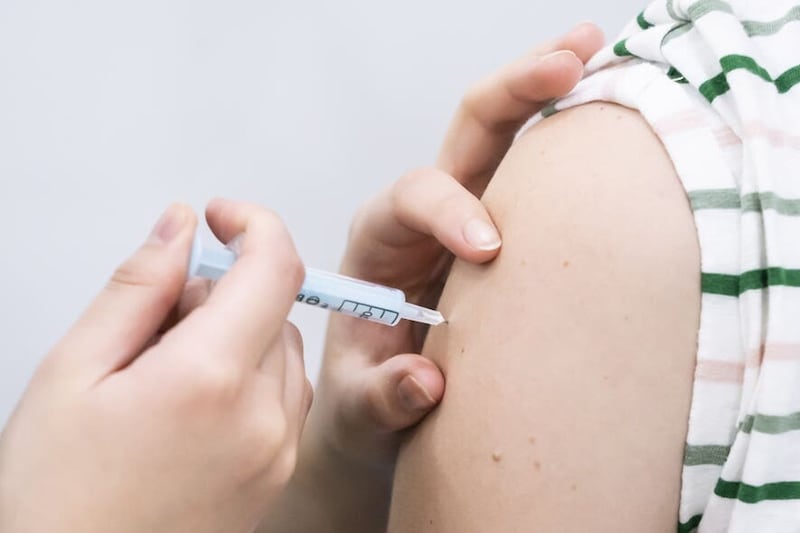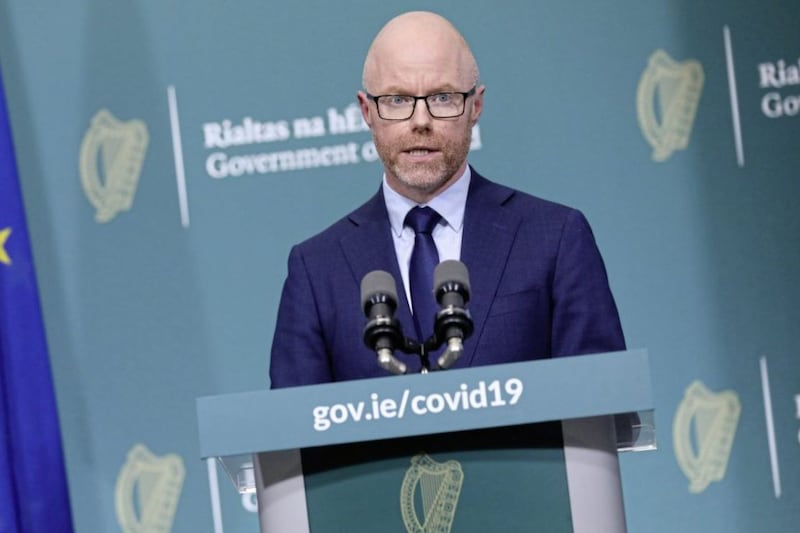Changes to the vaccine rollout plan will help the Republic to open up more quickly, the health minister has said.
The taoiseach announced yesterday that once those most at risk have been vaccinated, the priority list will be abandoned and will instead proceed based on age.
This means that key workers in essential jobs and the education sector who cannot avoid a high risk of exposure to the virus will lose vaccine prioritisation.
Speaking today, Stephen Donnelly said the changes in administration are “not a measure of how valued or how important” certain workers are, but about rolling out the programme in the most effective way.
Explaining the system, Mr Donnelly said: “By reducing the risk of Covid as quickly as possible it means we can open the country back up as quickly as possible.”
He said the change will “make us more efficient, more transparent and more effective in protecting the most vulnerable as quickly as possible”.
The minister added: “The allocation of Covid-19 vaccines is not a measure of how valued or how important people those roles are to our society or community.
“We know now that outside of specific clinical conditions, the main risk factor for poor outcomes from Covid-19 is age.
“It is a reality that someone in their 50s is at a significantly greater risk than someone in their 40s.
“Our options for opening up society depend on protecting those at highest risk first.
“This decision will maximise the benefit to everyone by increasing other options to return to more normal lives and a more open society.”
The new plan has been criticised by unions representing gardaí and teachers, who would have been prioritised under the old system.
At a technical briefing on vaccinations today, Mr Donnelly said he is willing to meet with Minister for Justice Helen McEntee and Minister for Education Norma Foley as well as representative bodies to discuss the concerns.
Previously, the vaccination plan was based on 15 cohorts, the first nine of which were the elderly, people with underlying conditions, residents of nursing homes and the most vulnerable.
Following advice from the National Immunisation Advisory Council (NIAC), the government decided to remove the remaining six cohorts from the list and proceed based on age, once those must vulnerable have been inoculated.
The chair of NIAC, Professor Karina Butler, said: “I’m confident that once people understand why decisions are taken, actually they will probably find no disagreement with them, really.”
Prof Butler said the biggest factor in severe outcomes from Covid-19, such as serious illness and death, is age.
“Primarily the aim of this vaccination programme is to minimise harm and protect against severe outcomes,” she said.
“And in that way, protect the health care system to do all the other things that are parked on one side by Covid.”
She added: “The other issue is that this will actually accelerate the rollout. It is clearly definable. Your age is identifiable.
“And so there won’t be the delays in hunting and searching – everybody can get protected more quickly.”
Vulnerable groups such as travellers, the homeless and the Roma community have been identified as being particularly at risk.
They are to be included in the cohort of those “working in crowded settings”, and will be vaccinated in parallel with the new age-based process.
Mr Donnelly said that “as vaccine supplies increase significantly, some of these groups can be vaccinated in parallel.
“This will be a feature of the programme as more and more vaccines become available from April onwards.”
Mr Donnelly said his department hopes to provide details for each age specific group as to when they can expect their vaccines in the coming weeks.
Vaccinations will open for the various age-specific groups from May onwards, he clarified.
HSE chief clinical officer Dr Colm Henry sad that pharmacists will become involved in the vaccine roll out when mass vaccination centres open and the age-based system kicks in.
However, he did not rule out their involvement prior to then.


